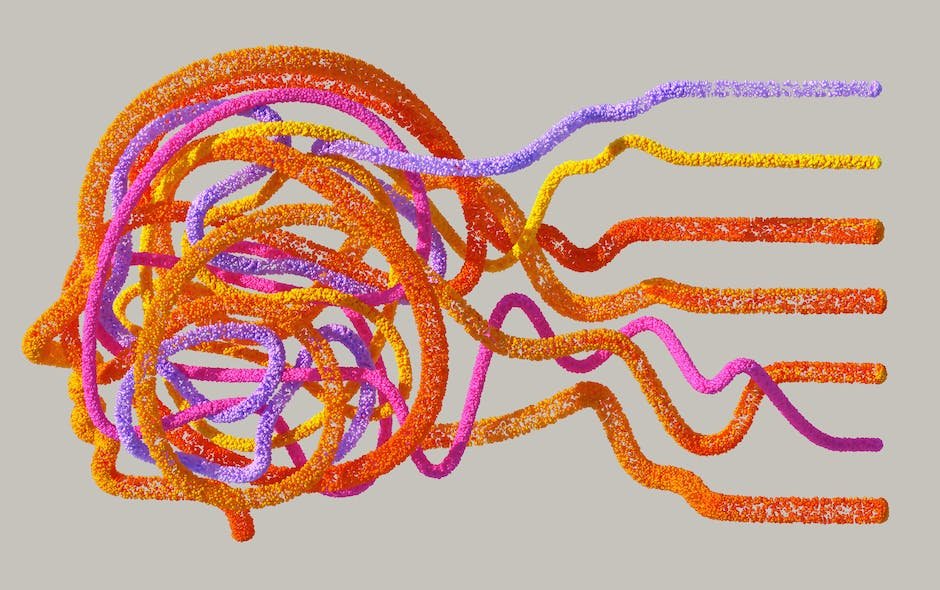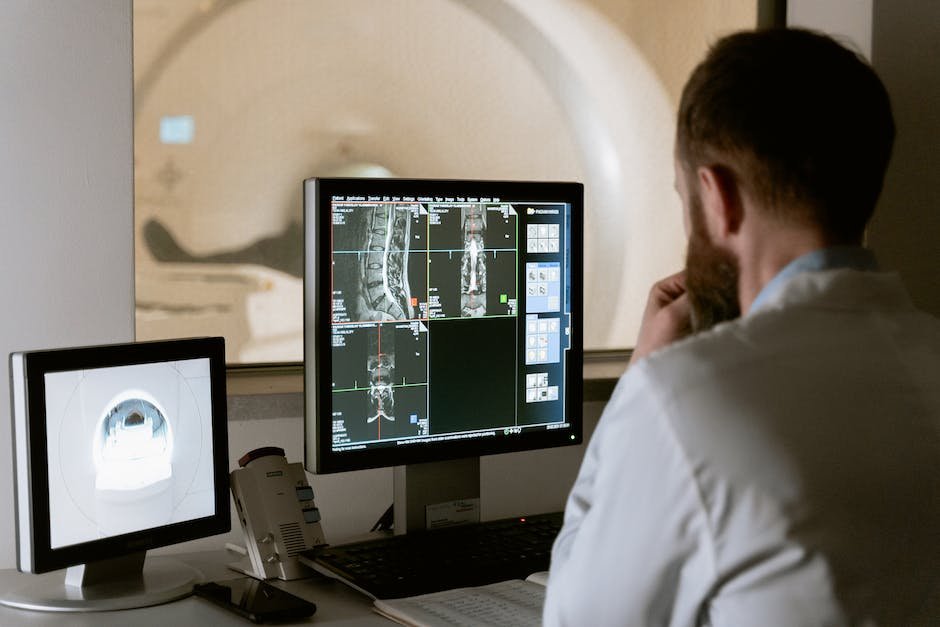Imagine walking into your doctor’s office and being greeted by artificial intelligence that can diagnose your health faster than ever before. That’s not a scene from a sci-fi movie; it’s a reality that’s unfolding today as AI leaps into healthcare. The heart of this revolution is in how we manage and understand health records much more efficiently. We’re talking about smart systems like those developed by Enlitic, making sense of mountains of medical data and leading the charge toward smarter healthcare solutions. So, get ready to dive into a world where AI isn’t just a cool gadget but a game-changer for our well-being.
The Rise of AI in Healthcare
Artificial Intelligence (AI) Revolutionizes Healthcare Management
Picture a world where doctors could predict health issues before they even happen. Where health management is tailored just for you, kind of like your Netflix recommendations, but for your health. Well, that’s not the stuff of sci-fi movies anymore—thanks to AI, it’s becoming our reality.
AI is really stepping up the healthcare game. It’s like having a superhero sidekick, but instead of fighting crime, it’s tackling health management. Now, let’s dig right into how AI is changing things.
AI: Your Health’s Personal Assistant
Imagine having a personal assistant that’s on the ball 24/7, never gets tired, and, oh, happens to be a computer program. That’s AI for you in healthcare. It helps manage patient data like a pro, sorting through mountains of medical records in a flash. It’s smart, fast, and super efficient—just what the doctor ordered for a busy clinic!
Predicting Health Problems Before They Happen
AI is just showing off now. It’s like it can gaze into a crystal ball and see health issues before they surface. By analyzing patterns in data, AI can predict if a patient is at risk of chronic diseases or if they might need a hospital visit soon. Doctors can then swoop in early with treatments or advice, helping patients stay on top of their health. It’s like preventive care got a major tech upgrade!
Custom-Tailored Treatments? Yes, Please!
Long gone are the days of one-size-fits-all health treatments. AI is bringing in the era of personalized healthcare. It takes into account your body’s unique makeup, your medical history, even your genes, and crafts a treatment plan that’s just for you. No more guesswork—AI’s precision means treatments can be more effective and have fewer side effects.
Robot Surgeons and AI Assisted Operations
Nope, it’s not a sci-fi movie scene. Robots, with a little help from AI, are lending a hand in surgeries. These robotic assistants are ultra-steady and can make precise movements that even the best surgeons would applaud. They’re like an extra pair of super skilled hands for complicated procedures.
Medical Chatbots: The Future of First Aid
Ever needed quick medical advice but couldn’t see a doctor right away? Enter medical chatbots. These AI-driven helpers chat with you, learn about your symptoms, and give advice on what to do next. It’s not meant to replace doctors, but it’s a fantastic way to get quick tips without waiting in line at the ER.
Making Sense of Health Stats
Health wearables are all the rage, but what do you do with all that data on your heart rate or sleep patterns? AI chews through it and dishes out insights that actually make sense. It highlights trends, gives a heads-up on potential issues, and basically decodes the secret language of your body’s data.
Streamlining Hospital Workflow
Hospitals are complex beasts, but AI helps tame them. By predicting patient admission rates and identifying which departments might get busy, AI helps hospitals manage their resources better. Think less waiting time, better care, and more smiles all around.
AI and Cybersecurity: Safeguarding Your Health Data
With great power comes great responsibility, and AI’s no different. It also plays a huge role in protecting your sensitive health data. Smart algorithms sniff out unusual activity and help keep medical records safe from the baddies. Your health info is locked down like Fort Knox!
All Aboard the AI Express!
AI is like the express train to the future of healthcare management, and it’s leaving the station with or without us. This tech is reshaping how doctors, nurses, and hospitals work, making healthcare smarter, more efficient, and personalized. It’s a game-changer, and honestly, it’s just warming up.
If you’re in the medical field, a patient, or just someone who’s into tech and health, AI has something for everyone. It’s no magic bullet, but it’s as close as it gets in making sure healthcare keeps up with our fast-paced lives. Keeping an eye on this tech space? You bet we should because AI in healthcare is just getting started!

Photo by betoframe on Unsplash
Enlitic’s Innovative AI Diagnostic Tools
Enlitic’s Innovative AI Diagnostic Solutions
Alright, let’s dive into what Enlitic has been cooking up in the lab to revolutionize healthcare diagnostics through artificial intelligence!
CurvyScan: 3D Imaging Unleashed
First off, Enlitic has unveiled CurvyScan, a real game-changer that takes CT scans to the next level. Traditional CT scans give us slices of imagery, but CurvyScan does something brilliant. It builds a 3D model of your insides—yeah, like a video game character—but way cooler because it’s you! This lets doctors see your body from every angle, which is super helpful in spotting issues that could be hiding out of a flat image’s view.
Deep-Learning Algorithms: Smarter Than Your Average Bear
Enlitic has these hyper-smart algorithms that can sort through medical images faster than a binge-watcher goes through a new TV series. They’re trained to look for patterns and anomalies that might signal something’s not quite right. It’s like having a detective combing through the evidence, but this detective learned everything from a vast library of medical imaging and can spot a clue a mile off.
Mining the Depths of Data
Think of all the data stuffed into health records—it’s a treasure trove! Enlitic’s AI can sift through this mountain of info in no time. Let’s say you’ve got some weird symptoms; Enlitic’s AI can link those symptoms to similar cases and even suggest what tests might uncover the mystery. No stone is left unturned, and no symptom is too small for these algorithms to consider.
Radiology’s New Best Friend
Radiologists, get ready to meet your match. Enlitic’s AI helps you see the invisible. It’s like putting on a pair of superhero goggles, revealing the tiniest of tumors or the sneakiest of fractures that normal eyes could miss—and way faster too!
The Ray of Hope: Enlitic’s Chest X-Ray Tool
One of Enlitic’s star players is their chest X-ray tool. Chest X-rays are pretty common, but there’s a lot that can go unnoticed. Enlitic’s AI helps radiologists spot abnormalities like lung nodules that could be early signs of cancer. It’s like having a super-smart buddy double-checking your work, giving you peace of mind that you haven’t missed anything important.
Keeping it Friendly and Efficient
Okay, so AI can sound a bit sci-fi and intimidating, but Enlitic’s tools are designed with health care pros in mind. They’re easy to use and fit right into the daily workflow. No need to wrestle with complicated tech that makes you want to pull your hair out. Nope, Enlitic’s AI is more like your helpful sidekick, quietly and efficiently making your day a touch easier.
Diving into the details, Enlitic’s technology isn’t just sci-fi fantasy—it’s the real deal, making waves and easing the burden on healthcare workers. It’s ensuring that patients get accurate diagnoses and catching things early when they’re much easier to treat. The tech is user-friendly, so doctors and techs won’t need to spend years learning to use it—it’s intuitive, just like the best tools should be.
The take-home message is, with Enlitic’s AI diagnostic tools, the future of healthcare is already here, and it’s looking mighty bright! Now, time to let that sink in as we ponder a world where AI and healthcare live in harmony, making us healthier and happier.

Impact on Healthcare Providers and Patients
Enlitic’s AI Tools: Revolutionizing Patient Care and Diagnostic Efficiency
The healthcare landscape is on the brink of a transformation, thanks to revolutionary tools like those developed by Enlitic. This innovative company harnesses the power of artificial intelligence to support healthcare providers and patients alike, delivering smarter, faster, and significantly more accurate diagnostics. Here’s how:
Enhanced Diagnostic Precision
Healthcare professionals worldwide are experiencing an upgrade in diagnostic accuracy due to Enlitic’s AI algorithms. These advanced systems delve deep into medical imaging, dissecting intricate details that may be overlooked by the human eye. This lends a hand to radiologists by pinpointing anomalies such as fractures, nodules, and tumors with refined precision, fostering early detection and treatment of various conditions.
Reduced Diagnostic Time
Time is of the essence in healthcare, and Enlitic’s tools are designed to respect this adage. By streamlining the analysis process, what traditionally took hours can now be accomplished in a fraction of the time. This rapid turnaround not only boosts productivity but also means quicker results for patients anxiously awaiting answers. Fast, yet reliable diagnoses translate into timely interventions, potentially saving lives and improving outcomes.
Mitigating Human Error
Even the sharpest minds are not impervious to fatigue and oversight. Enlitic’s AI steps in as the indefatigable partner, tirelessly cross-referencing and verifying results, thus reducing the margin for human error. This collaborative approach ensures healthcare providers can deliver care with enhanced confidence and peace of mind, knowing they have the backing of robust AI analysis.
Tailored Patient Care
Just like a bespoke suit, treatment plans should fit perfectly. Enlitic’s approach aids in crafting personalized treatment protocols by assimilating and processing a multitude of data points from a patient’s medical records. The result? A uniquely tailored strategy that’s optimized for the individual, dialing in on the most effective treatment with precision, a process that traditionally might involve trial and error.
Cost-Effective Health Management
By elevating the efficiency of diagnostic procedures and treatment plans, Enlitic’s technologies also contribute to cost reduction. With AI’s ability to quickly sift through and interpret vast amounts of data, hospitals and clinics save big on time and resources, allowing them to reallocate these savings into patient care, facility improvements, or educational programs for their staff.
The ripple effects of such cost-saving measures extend to the patient, too. Swifter diagnosis and targeted therapy mean potentially fewer hospital visits and procedures, easing the financial burden on patients and the healthcare system overall.
Future-Proofing Health Care Facilities
Enlitic keeps health practitioners ahead of the curve with tools that adapt to the ever-evolving medical landscape. As AI technologies advance, so do the capabilities of healthcare facilities equipped with these tools. They’re better prepared for whatever the future holds, be it novel diseases or increased patient loads, ensuring they remain on the forefront of medical innovation.
Access to Expert-Level Analysis
Small clinics and hospitals, especially those in remote or under-resourced areas, gain access to world-class diagnostic analysis through Enlitic’s AI solutions. This democratization of expert-level healthcare means better treatment outcomes for patients, irrespective of their location, flattening the healthcare equity curve significantly.
Enlitic and Empathy: A Balanced Approach
Contrary to concerns that AI might depersonalize healthcare, Enlitic’s technology actually allows providers to focus more on the human aspect of patient care. With AI handling analytical tasks, healthcare professionals can invest more time in patient interaction, education, and empathy—key components of healing and holistic care.
In summary, Enlitic’s AI tools act as the linchpin in modern healthcare, bolstering diagnostic accuracy, speeding up treatment plans, and ensuring patient care is top-notch and personalized. This cutting-edge technology is not just about smarter machines; it’s about creating a smarter, more responsive healthcare system where professionals are empowered, and patients receive the care they deserve, swiftly and effectively. Now that’s a health tech breakthrough worth talking about!

Data Security and Privacy Concerns
Artificial Intelligence (AI) continues to transform healthcare, revolutionizing everything from patient care to back-end operations. Its rapid integration into health records, while fruitful, raises significant concerns about data security and privacy that demand attention.
The use of AI in healthcare has the power to sift through vast amounts of sensitive data, spotting trends and making connections faster than humanly possible. However, the very capabilities that make AI so valuable also make it a potential vulnerability if not properly safeguarded.
One primary concern is the susceptibility of AI systems to cyber attacks. Hackers targeting healthcare AI could steal or corrupt sensitive personal data, resulting in a breach of patient confidentiality and trust. The potential financial and reputational damage to healthcare institutions is colossal, not to mention the emotional toll on affected individuals.
Another worry is the unintentional disclosure of personal health data through AI algorithms. AI systems learn from data, which could include identifiable health information that should remain confidential. If these learning databases are not de-identified correctly or if algorithms mistakenly reveal personal details, patients’ privacy could be compromised.
The complexity of AI systems also makes it challenging to control who has access to what information. While AI can streamline access to necessary health data for medical professionals, it opens the door for unauthorized users to potentially manipulate or gain insights into sensitive patient records.
Moreover, there’s the issue of consent. Patients generally agree to share their medical data for treatment purposes, but the usage of their data for machine learning purposes is a gray area. Transparency about how AI uses health data is critical, but it’s often lacking, leading to possible ethical violations.
Concerns extend to third-party AI tools used by healthcare providers. These external platforms might not adhere to the same stringent security protocols, raising questions about the overall integrity and safety of patient health information.
The challenge with AI is not just about preventing unauthorized access but also ensuring the technology’s decisions respect patient confidentiality. AI’s ability to connect disparate data points could inadvertently disclose someone’s health condition without their approval.
To address these concerns, there needs to be a balance between leveraging AI for improved healthcare and protecting the sensitive data it analyzes. Robust cybersecurity measures, clear data governance policies, and stringent regulatory compliance are essential to safeguarding health records in the AI era.
Healthcare providers must work closely with cybersecurity experts to design AI systems resilient to attacks and capable of identifying and responding to breaches swiftly. Continuous monitoring and updating of security protocols is non-negotiable in the fight to keep healthcare records safe in the hands of AI.
Educating patients and healthcare workers about the benefits and risks of AI in health records will also build a culture of awareness and accountability. A well-informed community can serve as the first line of defense against data security and privacy breaches.
In conclusion, the integration of AI into healthcare records is not a task to be taken lightly. It necessitates a proactive approach to security and privacy, ensuring that the very tool designed to enhance healthcare does not become a liability. With careful planning and implementation, AI can continue to innovate healthcare without compromising the confidentiality and integrity of patient health data.

Future of AI in Medical Record-Keeping
AI’s Expansion into Medical Record Accuracy and Accessibility
As we look toward a high-tech horizon, AI stands at the cusp of revolutionizing medical record-keeping. Forget the days of leafing through hefty files; AI’s ability to organize and manage records is like giving a super-librarian a home in health care. Records are becoming nimbly accessible and impossibly accurate – a dream coming true for patients and doctors alike.
Let’s talk about the road ahead for AI in medical record accuracy. Think about it: No more squinting at a doctor’s hurried handwriting. AI algorithms will be translating, transcribing, and simplifying these cryptic messages into crystal-clear data. Not only does this mean fewer errors, but it also promises quicker updates to a patient’s history. This accuracy is vital; it’s the difference between a treatment that works and one that misses the mark.
But wait, there’s even more on AI’s plate! It’s all set to revolutionize accessibility. Picture this: secure cloud-based systems that give you access to your medical history with just a few keyboard taps. This isn’t just convenient; it’s empowering. Need a second opinion? With your records a quick share away, switching doctors wouldn’t require a detective to track down your medical past.
Now, as with all good things, there are speed bumps. AI faces a balancing act, juggling privacy and accessibility. Every scrap of health data is precious, and with AI, digital moats and walls are fortifying, keeping those personal details safe from prying eyes.
And if you’re worried AI might take the “personal” out of personal healthcare, don’t be. AI is enhancing that connection, not cutting it. With standardized and simplified record-keeping, healthcare professionals can focus more on you and less on paperwork. Plus, AI doesn’t get tired. It doesn’t take breaks. It’s on guard 24/7, ensuring your records are up-to-the-minute and orderly.
Integration with Personal Health Devices
Let’s shift gears and consider wearable tech. From smartwatches tracking your heartbeat to sleep monitors, our lives are teeming with health data. AI in medical record-keeping is the master key. It’s streamlining every heartbeat, every step, and every ZZZ into a cohesive story about your health.
And as AI shakes hands with these wearables, we’re not only understanding our day-to-day health. We’re peering into the future. Predictive health, anyone? By crunching numbers and spotting trends, AI helps anticipate health hiccups before they even happen, gearing up preventative measures like hosting a welcome party for an unwanted guest.
Training and Adaptation in Healthcare Environments
It’s not all plug-and-play, though. The heart of the change is training—hospitals and clinics mastering the art of AI in medical record-keeping. Think of it as a dance where both partners need to know the steps. Doctors, nurses, and administrative staff need to tango with the tech, ensuring smooth twirls and dips, not stepped-on toes.
Continual learning is key for both AI and its human colleagues. As AI algorithms learn from their interactions, healthcare professionals also need to adapt, picking up new skills to work harmoniously alongside their silicon co-workers.
In Conclusion
What’s next for AI in medical record-keeping? The answer’s as vast as the codes within the AI itself. We’re looking at smart, secure, and accessible record management. We’re stepping into an era where AI doesn’t just keep records—it understands and anticipates health needs. With the right safeguards and training, the future is bright, and it’s all thanks to the symbiotic dance between human intelligence and its artificial counterpart. So there you have it, medical record-keeping is about to get a whole lot smarter. And we’re here for it.

From the x-rays to your latest blood test, AI’s role in reading and keeping healthcare records is just getting started. With tools like those from Enlitic, we’re seeing a new era of precision in diagnostics and a streamlining of healthcare processes that seemed like a distant dream just years ago. The changes this brings to our visits to the doctor’s office are already significant, but the potential for the future is even bigger. And while we keep a careful eye on data security and privacy, we can all feel a little more optimistic about the role technology will play in keeping us healthy. Yes, this world of high-tech health is getting more exciting by the minute!



